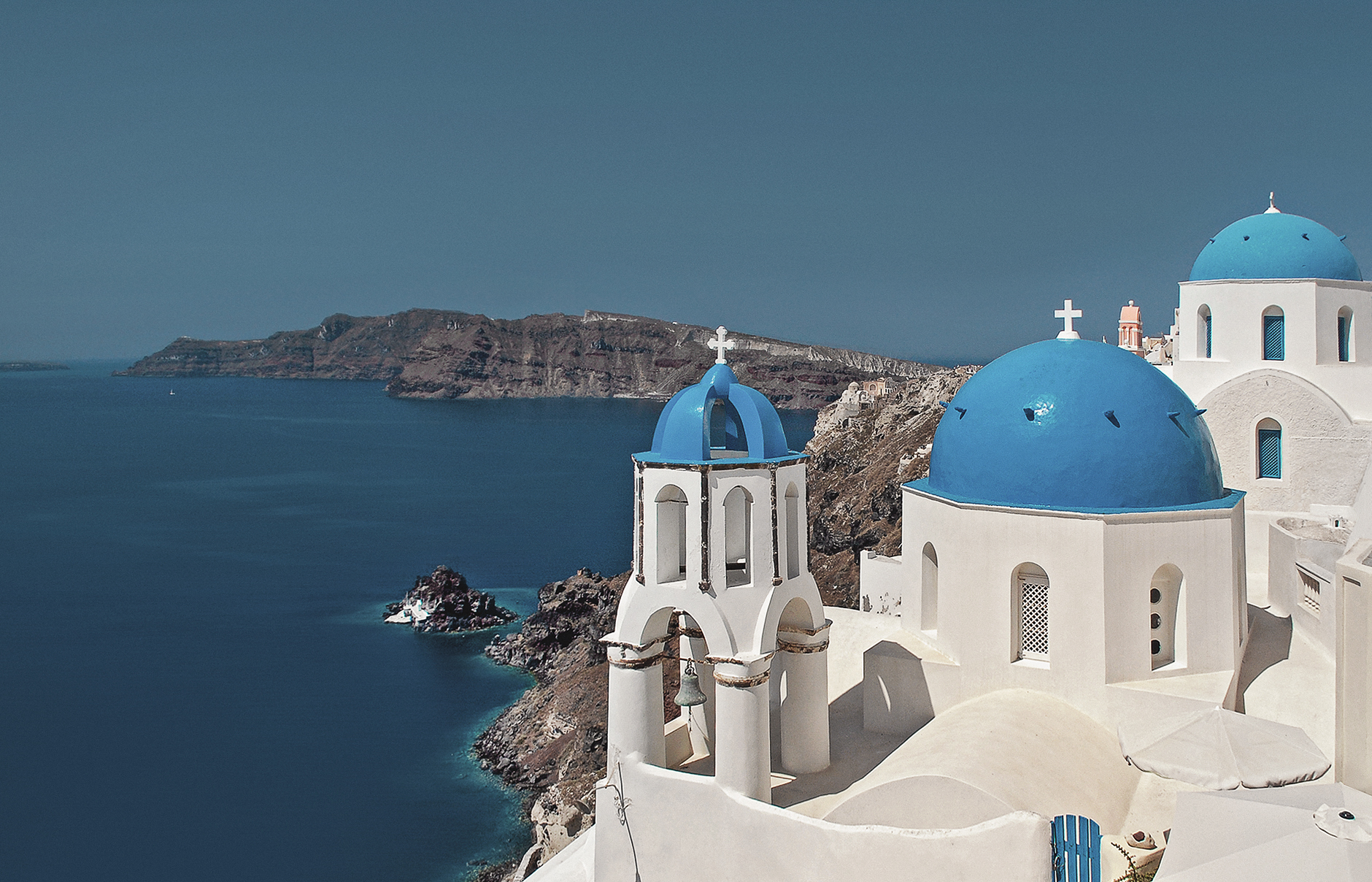

Think of Greece and you’re likely to envision enchanting waterfronts and rugged cliffs, adorned with pristine white houses and shrines, topped by blue domes and roofs. The Greek islands seem to embody blue and white.
With over 6,000 islands scattered across the Aegean and Ionian Seas, Greece is a paradise for island-hopping enthusiasts. Each island is steeped in the country’s history or a captivating legend, and many simply enchant with their unique atmosphere and stunning vistas.
To plan a tailored itinerary, check out Viator or GetYourGuide. Both platforms offer tours and activities suited to various interests, from cultural experiences to culinary adventures. You can also visit TripAdvisor for reviews and additional ideas for exploring Greece.
*This post contains affiliate links from which we may earn a commission, at no extra cost to you.
All photos in this post are by Laskowski & Zadros. © TravelPlusStyle.com.

Our 2025 guide to the top hotels on the island
Mykonos beckons with its vibrant nightlife, cosmopolitan atmosphere, and picturesque windmills. Renowned as the most beautiful island in the Cyclades, Santorini mesmerizes visitors with wonderful panoramas and the awe-inspiring story of ancient cataclysm. Its iconic whitewashed buildings cascade down dramatic cliffs, accompanied by legendary sunsets that captivate the soul. Meanwhile, Milos captivates with its unspoiled natural beauty, secluded beaches, and fascinating geological formations.
Crete, the largest of them all, is diverse, boasting plenty of gorges, beaches, and sites—the most spellbinding of which is Knossos, the ancient capital of a doomed civilization that still keeps most of its mysteries secret.
Then there’s Corfu, nestled in the Adriatic Sea, renowned as one of the greenest and most beautiful islands. Its landscape is adorned with lush cypress trees, vineyards, and olive groves, all framed by blue bays, sea caves, and long stretches of golden-sand beaches.
To the east, one of the islands nearest to Turkey is Rhodes. It has everything: a year-round pleasant climate, ancient temples, a UNESCO-listed, medieval Old Town, a pristine mountainous interior, and a coastline of beautiful, clean beaches. The cuisine of the island is highly unique too, with its strong Turkish influences.
The sights in Greece are all linked with the country’s amazing history and legends and often mesmerize visitors with beautiful vistas.
Greece is more than islands though. The Greek mainland has lots to offer; from wild mountains and clear rivers to crumbling castles, temples, and monasteries—with the unique Meteors as the most famous. The rugged landscapes of the Peloponnese peninsula provide opportunities for outdoor adventures, including hiking and exploring hidden waterfalls. Numerous activities await travelers who choose to visit Athens, not least its top attraction: the Acropolis.
The mainland of Greece is painted in fir greens, silver of olive groves, and brown colors of rock walls that cris-cross hills and flowery meadows. This part of the country is most beautiful in April and May when the fresh greens of mountain slopes sharply contrast with the snow-capped peaks.
The famous pace of Greek life encourages unhurried trips and long lunches. The meals are filled with the mandatory Greek salad and popular bites like tirokafteri (spicy cheese), taramosalata (a type of caviar paste), melitzanosalata (eggplant and salad) or pesto and tzatziki—all topped with a fresh pita bread dipped in olive oil.
And there will be no shortage of seafood or meals based on goat or sheep meat. Increasingly popular are local wines—particularly from Santorini. For the stronger heads, there is always Ouzo (anise-flavored liqueur).

An ideal time to embark on a Greek adventure is during the shoulder seasons of spring (April to June) and autumn (September to October). During these months, the weather is pleasantly warm, the crowds are smaller, and prices are more affordable compared to the peak summer season. This allows for a more authentic experience as you explore popular attractions without the intense heat and have the opportunity to mingle with locals. However, if you’re a beach lover or prefer warmer temperatures for outdoor activities, the summer months (July to August) offer long days of sunshine and perfect conditions for swimming and sunbathing. Just be prepared for larger crowds and higher prices during this time. Ultimately, the best time to visit Greece depends on your preferences and what you hope to experience during your trip.
*All photos in this post are by Laskowski & Zadros. © TravelPlusStyle.com.

Getting there: The flight-comparison sites such as Skyscanner (www.skyscanner.com) or Kayak (www.kayak.com) will help you find the best flights and deals.
Disclosure: We may earn commissions for purchases made through links in this post.
Author: Travel+Style. Last updated: 26/11/2024

Top Secret: See St. Peter's Tomb in Vatican City

Sossusvlei & Deadvlei, Namibia